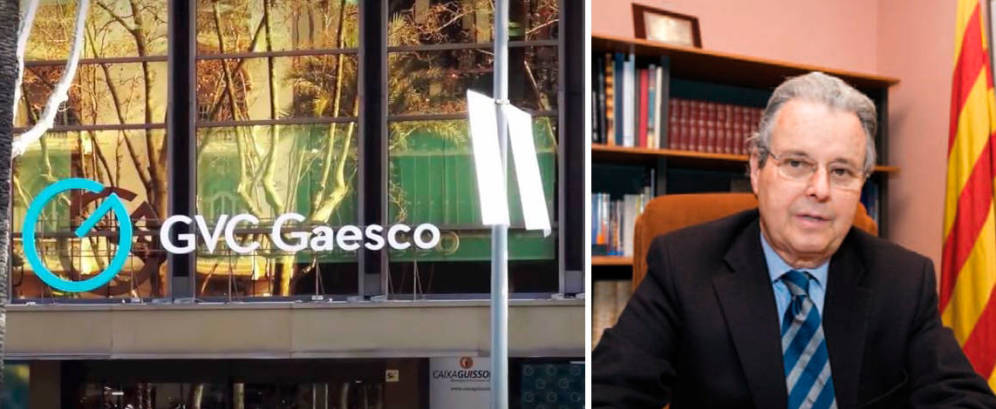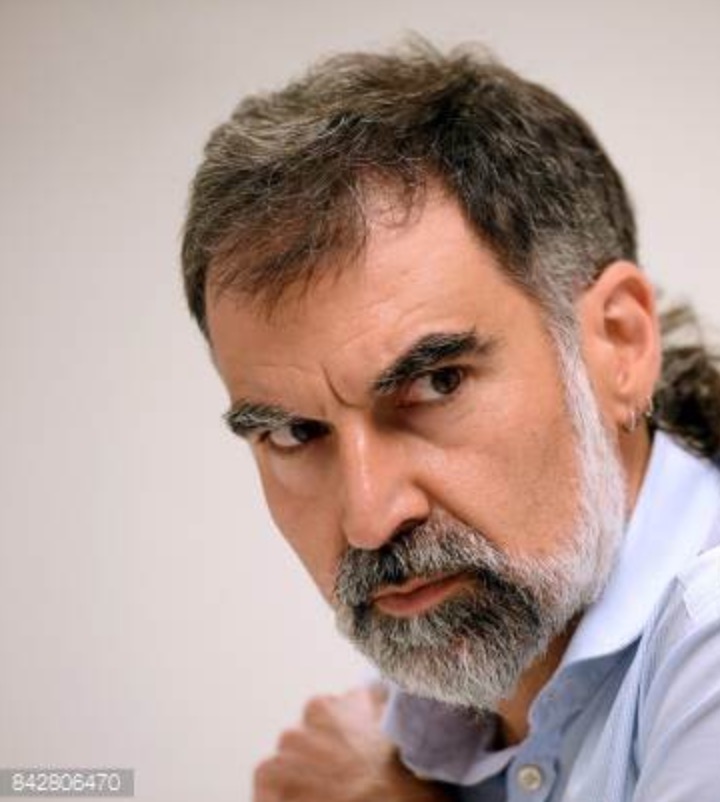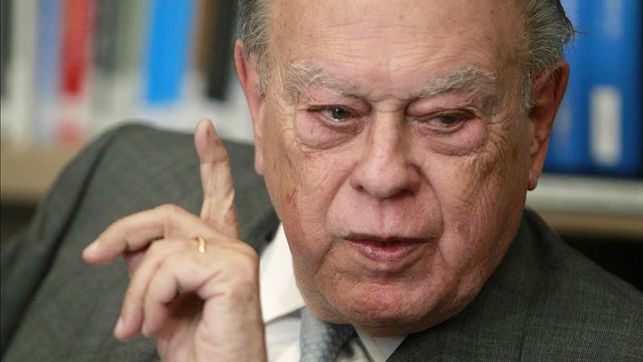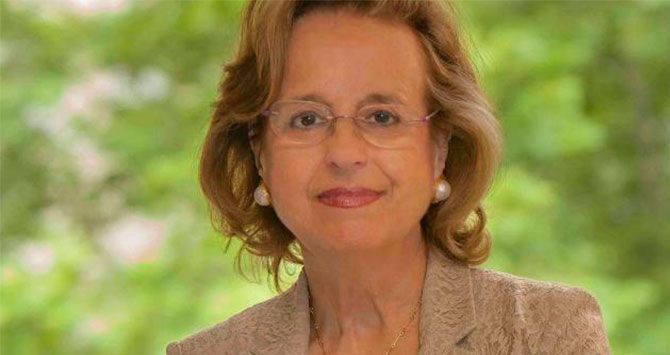One Million People Take To The Streets Of Barcelona To Call For Independence From Spain. Nationalism Is Rising
The German government just released the leader of the Catalonian separatist movement, Carles Puigdemont, on bail. As we read in one report from Euronews:
After the celebrations, now Carles Puigdemont’s lawyers are busy organising the handover of €75 000 in bail to German courts – money that should enable the former Catalan leader to walk free from jail later this morning.
After leaving the German prison in Neumünster, Puigdemont called on Spain to release all of the leaders of the nationalist Catalan separatist movement who are in Spanish prison:
“I [call] for the immediate release of all of my colleagues still in the Spanish prisons. It’s a shame for Europe to have political prisoners”
According to the New York Times, the German court ruled that Puigdemont “may not be extradited on a charge of rebellion and can be released on bail, pending a ruling on whether he can still be handed over on a lesser charge.” That lesser charge is that of the use of taxpayer money to support the illegal referendum that was done in Catalonia late last year to secede from Spain (or, the “misuse of public funds”).
The Washington Post reports:
German prosecutors say they have ordered the immediate release of ex-Catalan leader Carles Puigdemont after he posted 75,000 euros ($92,000) bail.
The Schleswig prosecutor’s office said Friday that Puigdemont also provided authorities with an address in Germany where he will reside pending a decision in his extradition case.
The 55-year-old was detained March 25 after crossing the border from Denmark. Spain is seeking his extradition for rebellion and misuse of public funds in organizing an unauthorized referendum last year on Catalonia’s independence from Spain.
The state court in Schleswig ruled Thursday that Puigdemont can’t be extradited for rebellion because the equivalent German law presumes the use or threat of force sufficient to bend the will of authorities. He can still be extradited on misuse of funds charges.
According to Puigdemont’s lawyer, Wolfgang Schomburg, the bail, 75,000 euros, or nearly $92,000, is going to be paid by Puigdemon’t supporters. It looks like Puigdemont’s bail was paid for by the National Assembly of Catalonia, and the major Catalonian nationalist organization, Omnium Cultural, as we read in one Catalan report:
The National Assembly of Catalonia (ANC) and Òmnium Cultural have paid the 75,000 euros deposit that German justice imposed on Carles Puigdemont in order to leave the prison of Neumünster. The money has been paid through the so-called solidarity box, which is filled with the contributions that citizens make through initiatives by entities such as the sale of yellow jars. ANC and Òmnium have also announced that thanks to this box, about 4 million euros have been paid in bonds. It should be remembered that the Schleswig-Holstein court has decided today to release the defendant with bail Carles Puigdemont and not extradite him for the crime of rebellion.
The funds came from Omnium Cultural, a nationalist organization which we have talked about in detail on this website. As we wrote in the past, there is a connection between Omnium Cultural and the financial elites.
There is a connection between Catalonian nationalism and the Deutsche Bank. A major financial company with ties with both Catalan nationalists and the Deutsche Bank is GVC Gaesco. According to one Catalan report, “GVC Gaesco is one of the historical brokers of the Spanish stock market, with more than 60 years of experience and some 45,000 million euros intermediated.”
According to Bloomberg, “GVC Gaesco Valores S.V. S.A. provides financial and brokerage services to the Spain market. The company offers products and services in the areas of equities, fixed incomes, derivatives, foreign exchange, investment funds, pension plans, personal advice, and tax.”
According to one business report, one of the highest positions that Gaesco has is with Deutsche Bank:
One finds a tie between big financial agents of Gaesco who are within nationalist circles and the Deutsch Bank. The major organization that has led the secessionist movement is Omnium Cultural, a nationalist group whose motto is, “Language, culture and country”. The president of Omnium is Jordi Cuixart, a radical separatist leader who is now in prison for sedition against the Spanish government.
Omnium has been receiving funds from the Vallvé family. Joan Vallvé Ribera is vice president of Omnium Cultural. His father was Joan Vallvé i Creus who not only helped found Omnium Cultural, but was managing director of the company Metales y Platerías Ribera, the company in charge of coining the peseta in a factory in Poblenou in the 1960s, which means that Creus was deep in the financial establishment. Creus was also president of the Association of Industrial Engineers of Catalonia. Again, we find the connection between the financial establishments and nationalism. In other words, the Catalonian nationalist movement is being backed by extremely wealthy people.

Joan Vallvé Ribera, one of the directors of GVC Gaesco, and vice president of Catalonian nationalist organization, Omnium Cultural
Shortly before his death in 1988, Creus wrote a list of candidates for the European parliamentarian election, from the Convergence and Union ( CiU), a political federation consisting of two Catalonian nationalist parties, the center-right Democratic Convergence of Catalonia and the Democratic Union of Catalonia, a Christian Democrat party (the federation dissolved in March of 2017). This is interesting considering that it was in the CiU where Carles Puigdemont, the current leader of the Catalonian separatist movement, began his political career before he entered the Catalan European Democratic Party in 2016.
Creus’ son, Joan Vallvé Ribera, is a politician who served as a member of the Catalonian parliament for the Democratic Convergence of Catalonia party in the 1980s, and in 1994 he was appointed as a member of the parliament of the European Union where he served until 1999. Between 1996 and 2004, Joan Vallve was president of the Association of European Border Regions (ARFE)
From 2006 to 2007, Joan Vallve chaired the Association of Industrial Engineers of Catalonia, and is currently the dean of the Catalan Industrial Engineers Association, where he has served since 2007.
Here we see the merging and interconnection between politics and industry in the Catalonian nationalist situation. The Catalonian nationalist movement was helped founded by Joan Vallvé i Creus, a major Catalan industrialist who was heavily involved in Catalan politics; his son, Joan Vallvé Ribera, is the vice-president of the Catalonian nationalist organization, Omnium and was an EU politician and was also an advisor for the Catalonian nationalist, Jordi Pujol, who served as the president of Catalonia from 1980 to 2003.
Joan Vallve Ribera’s sister, Maria Àngels Vallvé Ribera, is president of the GVC Gaesco Holding group. What is interesting is that before Carles Puigdemont declared Catalonian independence from Spain in October, Maria’s company, GVC Gaesco Holding, transferred its headquarters from Barcelona (the capital of Catalonia) to Madrid, in fear of the destabilization that would come from Spanish fragmentation.
In other words, the financial powers who are for and behind Catalonian nationalism and separatism, know about the dangers that secessionism brings, and want to stay clear from the precariousness as they support the very chaos that they are avoiding. The connection between Gaesco, its leaving Barcelona, and the nationalist movement, Omnium Cultural, was made by one Spanish periodical:
“GVC Gaesco states that it agreed in September to transfer its registered office to Madrid. The fact is that the member of the board of directors of the securities firm Joan María Vallvé is also the second vice-president of Òmnium Cultural, one of the nursery organizations of the independence thesis.”
Joan Vallvé Ribera, Maria’s brother, is a board member of GVC Gaesco Holding and vice-president of the Catalonian nationalist organization Òmnium Cultural. It is quite interesting: a company ran by a family of Catalonian nationalists leaves Catalonia weeks before Puigdemont declared independence. Its an indication that big industrialists are part of the conspiracy behind the fragmentation of Europe.
Maria’s husband is Joan Hortalá who is a shareholder of GVC Gaesco and the current president of the Barcelona Stock Exchange (Bolsa de Barcelona). Its interesting to look at the members of the Barcelona Stock Exchange; they include some very powerful financial players, such as the Deutsche Bank, Caixa Bank and GVC Gaesco, the very company ran by Maria Àngels Vallvé Ribera whose brother and father have been very active in Catalonian nationalism.
Also, if you look at the partners of Gaesco GVC, one will find the Barcelona Stock Exchange (Bolsa de Barcelona):
That the president of the Barcelona Stock Exchange is with the nationalists, shows the significant link between the financial establishment and Catalonian nationalism.
Gaesco is one of the few Spanish financial establishments that has a portfolio with Deutsche Bank. In the words of Spanish economist Vicente Varo:
“Very few Spanish fund managers have the bank [Deutsch Bank] among its main portfolio positions. As I see in Jucaspe, only the GVC Gaesco Multinational and the GVC Gaesco Europe had more than 5% at the end of the second quarter.”
Deutsch Bank is connected with GVC Gaesco, which puts a relation between German bankers, Catalonian nationalism, and ultimately, the destabilization of Europe. Very interestingly, the former Greek finance minister, Yanis Varouvakis, just recently said that the rise of nationalism in Catalonia is exactly what the elites within the EU want.
Varoufakis also links the rise of ethno-nationalism in Catalonia to the 2008 crises because, as he explains, when austerity was being imposed in Spain, the Spanish government used the austerity to justify controlling some of the economic decisions of the Catalonian government, and thus fueling nationalism in the region. In 2010, only 10-15% of Catalonians supported the idea of an independent state. Nationalist sentiment boomed in the last few years.
The economic crises in Europe was, in the words of Lord Mervyne King, the former Chief of the Bank of England, “almost as a a deliberate act of policy which makes it even worse”. This further confirms what Varoufakis said, that the rise of Catalonian nationalism is what the EU wants. As Varoufakis said: “this is unleashing demonic forces, not just in Spain, but across Europe.” As he says in this interview:
If the upsurge in Catalonian nationalism is what the EU wants, then it is linked to the Deutsch Bank, the official bank of Germany, the head of the European Union. Lets remember that the Deutsch Bank was a big player with the Nazis. It appears that Puidemont is now being protected by the Germans, and if this is truly the case, one can see how the Germans could use Catalan nationalism to fragment Europe, create a political vacuum and further empower pan-Germanic power.












Comments are closed.